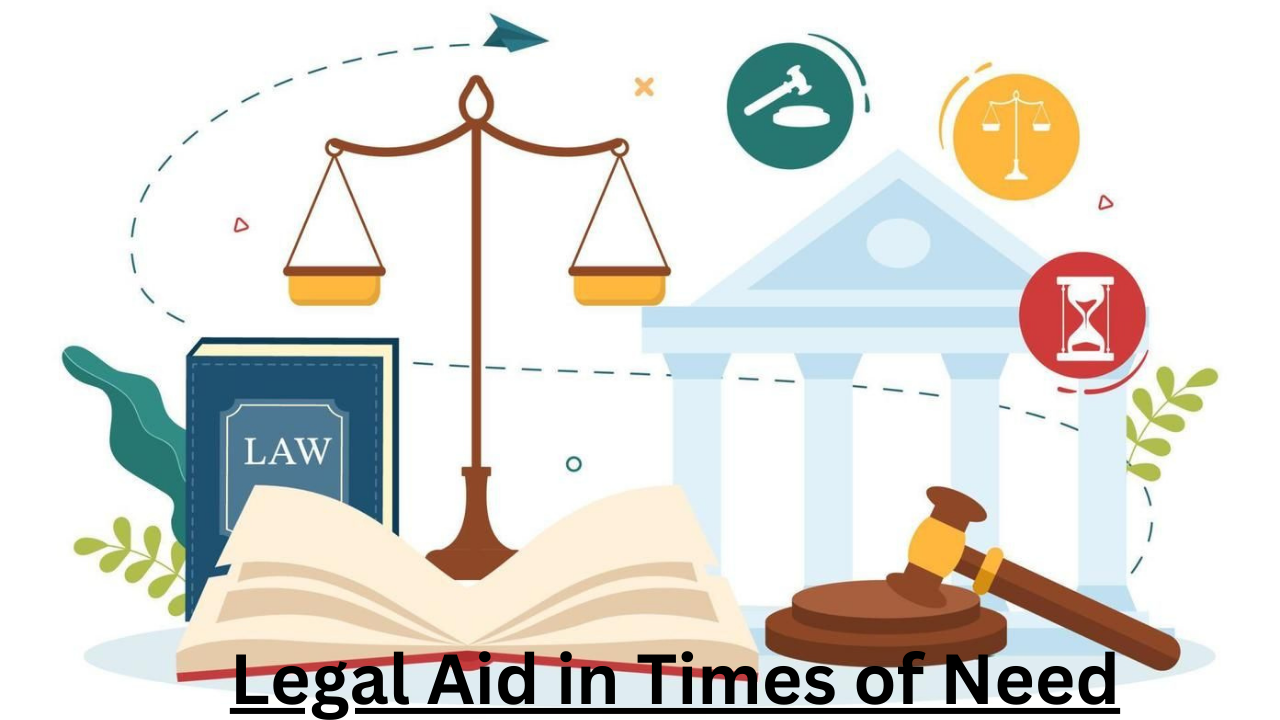Introduction
In a world where legal issues can arise unexpectedly, access to legal assistance is a fundamental right. However, for individuals facing legal challenges without the means to afford a lawyer, navigating the complexities of the legal system can be daunting. Fortunately, various avenues exist to provide legal aid and support to those in need, regardless of their financial circumstances. In this comprehensive guide, we will explore the options available for accessing legal assistance when you have no funds, from pro bono services and legal aid organizations to self-help resources and community support. By the end, you’ll have a better understanding of how to navigate the legal system and protect your rights, even when facing financial hardship.
Chapter 1: The Importance of Legal Assistance
Equal Access to Justice
Access to legal assistance is a cornerstone of a fair and just society. It ensures that all individuals, regardless of their financial means, have the opportunity to assert their rights, defend themselves in legal proceedings, and seek redress for grievances.
Complexity of the Legal System
The legal system can be complex and intimidating, with intricate rules, procedures, and terminology. Without legal assistance, individuals may struggle to navigate the system effectively, risking adverse outcomes and injustice.
Chapter 2: Pro Bono Legal Services
What is Pro Bono Legal Work?
Pro bono legal work involves lawyers providing free or reduced-cost legal services to individuals and organizations in need. Pro bono cases may encompass a wide range of legal issues, including civil rights, family law, criminal defense, and more.
Benefits of Pro Bono Services
Pro bono legal services offer numerous benefits, including:
- Access to Legal Representation: Individuals who cannot afford to hire a lawyer can access much-needed legal representation through pro bono services.
- Expertise and Experience: Pro bono lawyers often possess specialized knowledge and expertise in their respective areas of law, providing valuable guidance and advocacy to their clients.
- Community Impact: Pro bono work contributes to the greater good by promoting equal access to justice and addressing systemic inequalities within the legal system.
Chapter 3: Legal Aid Organizations
Role of Legal Aid Organizations
Legal aid organizations are nonprofit entities that provide free or low-cost legal assistance to individuals who cannot afford private representation. These organizations offer a range of services, including legal advice, representation in court, and community legal education.
Types of Legal Aid Services
Legal aid organizations offer various types of legal assistance, including:
- Legal Advice Clinics: Drop-in or scheduled sessions where individuals can receive legal advice from volunteer lawyers.
- Representation in Court: Legal aid lawyers may represent clients in court proceedings, including hearings, trials, and appeals.
- Community Legal Education: Workshops, seminars, and informational materials designed to educate the public about their legal rights and responsibilities.
Chapter 4: Self-Help Resources
Legal Self-Help Centers
Many courts and legal aid organizations operate self-help centers that provide resources and assistance to individuals representing themselves in legal proceedings. These centers offer guidance on filling out legal forms, understanding court procedures, and navigating the legal process.
Online Legal Resources
Numerous websites offer free or low-cost legal resources and tools for individuals facing legal issues. These resources may include legal guides, form templates, and interactive tools to help individuals understand their legal rights and options.
Chapter 5: Community Support and Advocacy
Nonprofit Organizations and Advocacy Groups
Nonprofit organizations and advocacy groups play a vital role in providing support and resources to individuals in need of legal assistance. These organizations may focus on specific legal issues or populations, such as domestic violence survivors, immigrants, or veterans.
Peer Support Networks
Peer support networks offer individuals facing legal challenges the opportunity to connect with others who have similar experiences and share information, resources, and support. These networks may exist online or through community-based organizations.
Chapter 6: Conclusion
Access to legal assistance is a fundamental right that should not be contingent on financial means. Whether facing a civil dispute, criminal charges, or other legal challenges, individuals have options for accessing legal aid and support, even when they have no funds. From pro bono services and legal aid organizations to self-help resources and community support, there are numerous avenues available for navigating the complexities of the legal system and protecting one’s rights. By leveraging these resources and advocating for equal access to justice, individuals can assert their legal rights, seek redress for grievances, and build a more equitable society for all.
In this comprehensive guide, we’ve explored the various options available for accessing legal assistance when you have no funds, from pro bono services and legal aid organizations to self-help resources and community support. Armed with this knowledge, individuals can navigate the legal system with confidence, assert their rights, and pursue justice, regardless of their financial circumstances.
